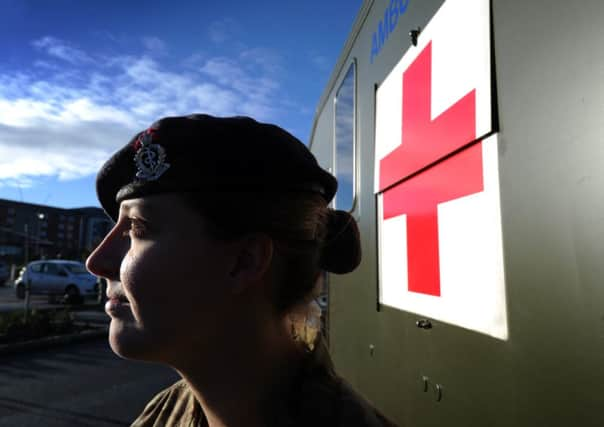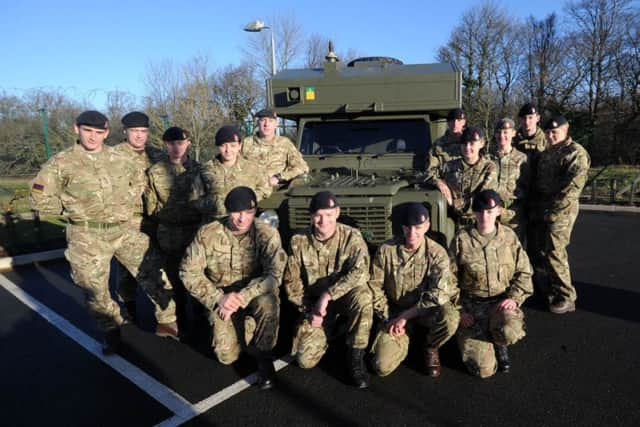Troops who took on Ebola home for Christmas


Relying on a couple of briefings and harrowing news reports of the outbreak of Ebola which has devastated many parts of West Africa for information of what she was about to see made the 21-year-old army medic’s first overseas tour all the more daunting.
Anxiety coming face-to-face with the horrors of the disease which has claimed more than 6,800 lives so far was shared by the 100 soldiers from 35 Squadron, 5 Medical Regiment, based in North Yorkshire’s Catterick Garrison as they embarked on their mission to share their expertise with men and women in the country.
Advertisement
Hide AdAdvertisement
Hide Ad“You see the news and you see the devastation, but part of me was excited we were going out to help,” said Pte Whitham.


While strict rules meant the team did not come into contact with those suffering from Ebola, they witnessed first hand the impact it has had on the everyday lives of Sierra Leoneans.
Schools had been shut, with children reduced to selling things on the streets. Shops were closed for business. People’s livelihoods had evaporated into a black hole of despair.
Some of the medics’ work training residents in hygiene practices and measures design to limit the spread of the illness was carried out in a football stadium which had been abandoned for six months, another effort to bring the epidemic under control.
Advertisement
Hide AdAdvertisement
Hide AdIt was a stark contrast to the conflict zones more familiar to Bradford-based Corporal Darren Rendell, aged 30.
He said: “Everyone has lost family or friends, people have lost their jobs.”
Pte Whitham added: “They were banned from hugging, from touching. It meant people couldn’t comfort those closest to them at a time when they needed it most, it went against what felt natural to them.”
As a father-of-one, with his wife expecting a baby back home in Bradford, Cpl Rendell found it particularly difficult knowing thousands of youngsters and babies had died after becoming infected.
Advertisement
Hide AdAdvertisement
Hide AdBut the determination to defeat the disease was shared by British Armed Forces and the people of Sierra Leone.
He said: “As a dad you do think about those things, but it felt good to be where you were wanted.
“Everybody wanted to do something, whether it be providing healthcare or being a cleaner.”
Based in an Ebola-free camp out of harm’s way gave medics the chance to focus on teaching three-day infection prevention courses. Basics like hand-washing might seem simple, but it could mean the difference between life and death.
Advertisement
Hide AdAdvertisement
Hide AdWhen 3,000 men and women had been trained, the regiment were told they could go home, just in time to enjoy Christmas with their families.
“One of the worst parts for me was not knowing how long I’d be gone for I’d been buying gifts on eBay out there just in case,” said Pte Whitham, who will spend December 25 with her partner Glen, 28, in Chesterfield.
Despite the undoubted devastation, the medics are confident their work has helped equip locals with the knowledge needed to fight Ebola.
“I think you’ve got to try and find the good, and I think Sierra Leone has learned lessons which will stay with it forever,” said Pte Whitham.